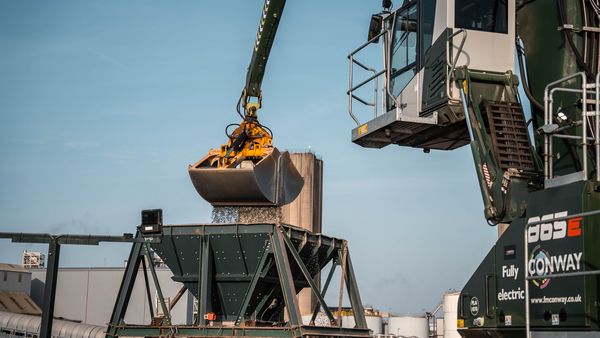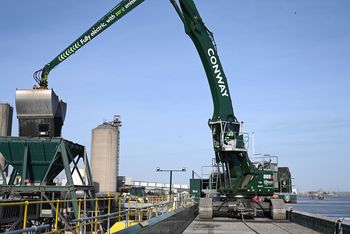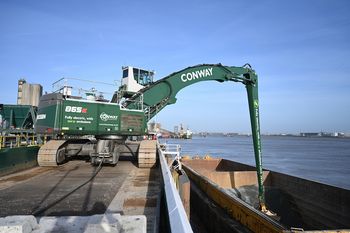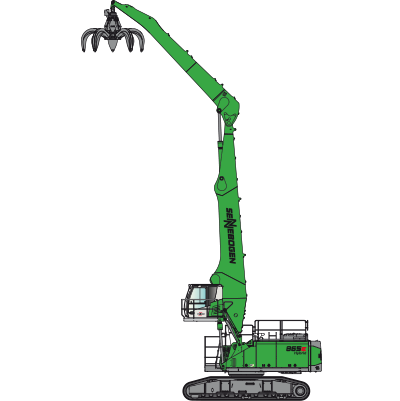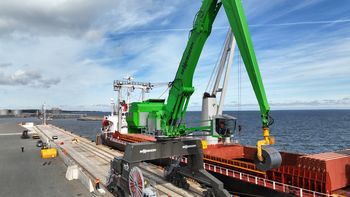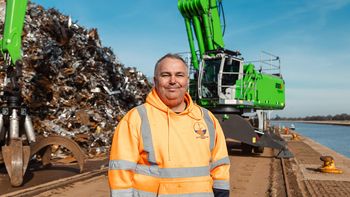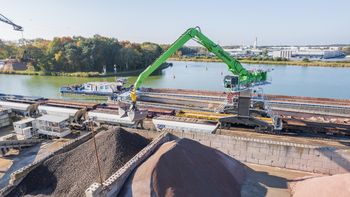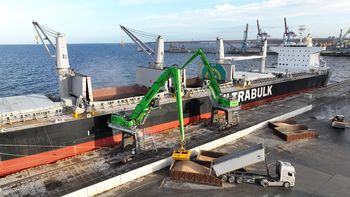Unload ship in 6 hours and reduce energy consumption
British construction company FM Conway is relying on the electric-powered SENNEBOGEN 865 E crawler material handler as a sustainable and efficient solution for material handling at its asphalt plant in Erith. The innovative plant benefits from the machine's higher handling capacity and energy efficiency, which has been specially configured for use on the 150-meter-long pier along the Thames.
Founded in 1961, FM Conway is a long-established name in British infrastructure and well known for its many road construction projects throughout Greater London. To ensure an independent asphalt supply for its operations, the company built a modern asphalt plant in Erith, right on the Thames. The site is supplied via inland vessels that dock at its own unloading pier. However, extreme tidal fluctuations and the slender, stilted pier construction pose significant challenges for unloading operations.
Tidal range and delicate unloading pier
Conditions at the Erith site are demanding: with tidal differences of up to 7 meters, unloading operations must account for major height variations. At the same time, the stilted pier structure can only support limited ground pressure. The SENNEBOGEN 865 E meets these challenges with a range of custom features:
- 25-meter reach: ensures reliable material transfer from vessel to onshore hopper even at low tide
- Crawler undercarriage: distributes ground pressure evenly and provides mobility along the 150-meter pier
- Cable reel system: supplies consistent power while maintaining full machine mobility
- Elevating Maxcab: provides the operator with optimal visibility into the ship’s hull and hopper
- Camera system: supports safe and precise control during unloading
Sustainable Technology replaces proven equipment
The 865 E replaces a comparable SENNEBOGEN machine in port handling that had been in reliable service for over 13 years. Now, equipped with a 250 kW electric motor powered via cable reel, the new machine provides low-emission, low-noise operation. The integrated SENNEBOGEN Green Hybrid energy recovery system allows up to 30 % energy savings, significantly reducing operating costs. FM Conway received support during the acquisition from SENNEBOGEN’s UK sales and service partner, Molson Group. “We had been using a similar SENNEBOGEN machine very successfully for almost 13 years. When the time came for a replacement, we worked with the Molson team to find the optimal electric solution,” explains Mark Whelehan, Head of Major Projects at FM Conway.
Optimized Equipment
With a reach of up to 25 meters and a 3 m³ clamshell bucket, the SENNEBOGEN 865 E efficiently handles ships with a capacity of 1,500 to 5,000 tons at the site. The machine transports various fractions of rock (6 mm to 20 mm) directly into a hopper, which transports the material to the storage building via an automated conveyor system. “After six months of intensive operation, we know that we made the right decision. The machine runs absolutely reliably and has significantly increased our productivity,” Mark Whelehan continues.
100,000 tons higher handling capacity
With the new SENNEBOGEN 865 E, FM Conway has increased its average handling capacity to around 420 tons per hour – a gain of more than 100,000 tons per year compared to the previous solution. “We can unload a 1,500-ton vessel in about 6 to 8 hours, depending on the tides. Larger ships take between 13 and 16 hours,” reports the team in Erith.
Machine in use
Press images
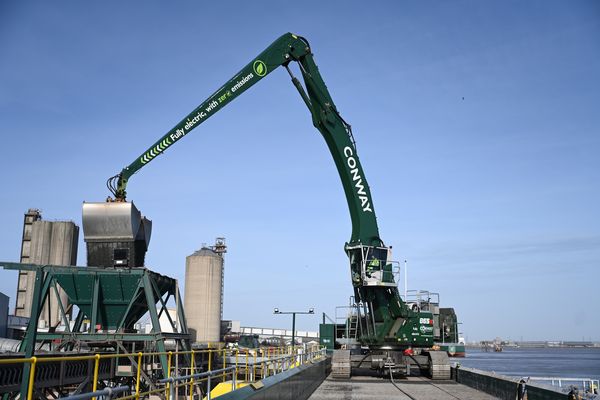
Press images
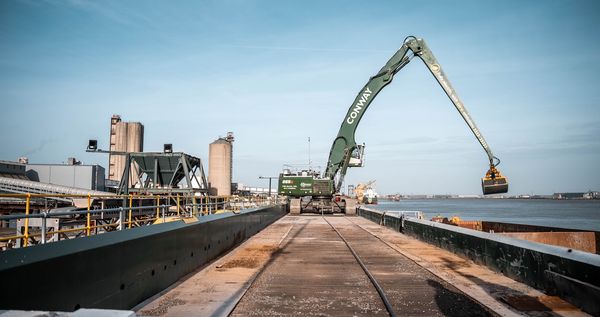
Press images
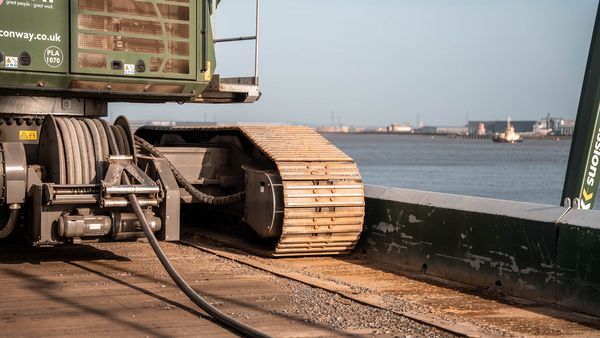
Press images

Press images
